Shocking fate of motherless infants - PHOTO
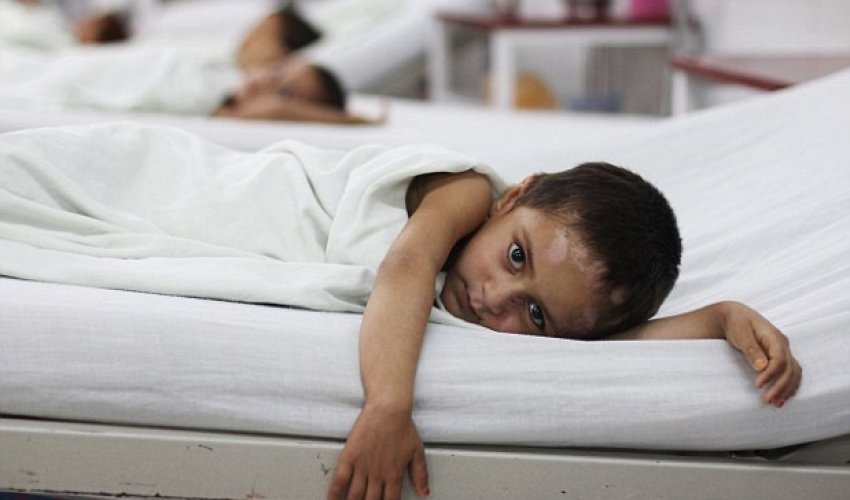
These heartbreaking pictures reveal a little-reported tragedy of the fighting in Afghanistan – the helpless babies left orphaned or motherless by the conflict.
The battle against the Taliban has left a deadly legacy for Helmand's children of war: babies without mothers and children so malnourished they are at risk of dying.
MailOnline visited a hospital treating children and civilians who have been hit by improvised explosive devices or who have been prevented from getting basic healthcare by the insurgency.
We found babies and children who have either lost their mothers because of the war, or who are now at risk of death for want of proper nourishment.
Tiny Ehsanullah is nine months old yet resembles a newborn. His mother bled to death when he was two days old.
He is one of the forgotten victims of the vicious wave of violence sweeping Afghanistan, which culminated in a Taliban attack on Camp Bastion this weekend. With the insurgency still a depressingly potent force, it is the Afghan civilian population that is bearing the brunt of its violence.
It is only days since the last British troops left Afghanistan, at a time when civilian casualties are up by a quarter.
The number of civilian casualties this year is up by a quarter, with 4853 deaths and injuries from January to September compared to the same period last year.
But not all the casualties of the war are from bullets or guns.
Unicef warns of an epidemic of motherless children and babies dying in childbirth. Afghanistan is one of the world’s most dangerous places for women to have children.
For 100,000 births, 460 women will die in childbirth or during pregnancy.
Ehsanullah's mother died as an indirect result of the fighting – because the Afghan National Army simply wouldn't grant her family access to the hospital road as she lay dying in their car.
He was two days old when his 17-year-old mother began to hemorrhage from her womb. The pregnancy and home-birth had gone smoothly enough, but when the bleeding began, Ehsanullah's father decided it was too serious to treat at home.
It was 2am. The roads were clear, and with the local medical clinic only a 15-minute drive from their house in Maiwand, a village in the southern Afghanistan province of Helmand, help was not far.
But at 4am, they were still in the car – and Ehsanullah's mother was dead. They had barely driven outside their village when Afghan national security forces stopped them.
'They stopped our car from far off,' Ehsanullah's grandmother said. 'One of our men approached them to say that we had a patient but they didn't let us go. Maybe they were afraid that he was not telling the truth because we were coming from the village.'
Unwilling to risk being shot at, they waited in the car as Ehsanullah's mother bled to death.
'We were stopped for about two hours because of the ongoing conflict. Perhaps they thought we were going to help the insurgents or they thought it was not safe. But they would not let us pass. Eventually we turned back and went home with her dead body,' his grandmother said.
The young mother will not be counted as a civilian casualty of war. But like so many others never heard of, her life was cut short and her son's life upended as a result of the conflict between Afghanistan's security forces and militants, while Western nations have withdrawn and declared the battle over for their armies.
But in addition to the acute maternal mortality rate, children are facing a battle to survive simply through lack of food and nutrients.
Mark Bowden, a UN humanitarian coordinator in Kabul, explained that malnourishment is also one of the biggest issues facing children in Afghanistan.
He said that 1.2 million children there are 'acutely malnourished' - with half a million of them are under five years old.
Malnutrition is the one of the leading causes of deaths of children under five in the country, responsible for around one-third of deaths in this age group.
Nine months after his mother's death, Ehsanullah is in hospital receiving treatment for severe malnourishment. It was not until he developed multiple secondary infections that his family scraped together enough money to take him for medical treatment to the hospital with a dedicated ward for malnourished children, supported by Medecins Sans Frontiers in the capital of Helmand province, Lashkar Gah.
(dailymail.co.uk)





The battle against the Taliban has left a deadly legacy for Helmand's children of war: babies without mothers and children so malnourished they are at risk of dying.
MailOnline visited a hospital treating children and civilians who have been hit by improvised explosive devices or who have been prevented from getting basic healthcare by the insurgency.
We found babies and children who have either lost their mothers because of the war, or who are now at risk of death for want of proper nourishment.
Tiny Ehsanullah is nine months old yet resembles a newborn. His mother bled to death when he was two days old.
He is one of the forgotten victims of the vicious wave of violence sweeping Afghanistan, which culminated in a Taliban attack on Camp Bastion this weekend. With the insurgency still a depressingly potent force, it is the Afghan civilian population that is bearing the brunt of its violence.
It is only days since the last British troops left Afghanistan, at a time when civilian casualties are up by a quarter.
The number of civilian casualties this year is up by a quarter, with 4853 deaths and injuries from January to September compared to the same period last year.
But not all the casualties of the war are from bullets or guns.
Unicef warns of an epidemic of motherless children and babies dying in childbirth. Afghanistan is one of the world’s most dangerous places for women to have children.
For 100,000 births, 460 women will die in childbirth or during pregnancy.
Ehsanullah's mother died as an indirect result of the fighting – because the Afghan National Army simply wouldn't grant her family access to the hospital road as she lay dying in their car.
He was two days old when his 17-year-old mother began to hemorrhage from her womb. The pregnancy and home-birth had gone smoothly enough, but when the bleeding began, Ehsanullah's father decided it was too serious to treat at home.
It was 2am. The roads were clear, and with the local medical clinic only a 15-minute drive from their house in Maiwand, a village in the southern Afghanistan province of Helmand, help was not far.
But at 4am, they were still in the car – and Ehsanullah's mother was dead. They had barely driven outside their village when Afghan national security forces stopped them.
'They stopped our car from far off,' Ehsanullah's grandmother said. 'One of our men approached them to say that we had a patient but they didn't let us go. Maybe they were afraid that he was not telling the truth because we were coming from the village.'
Unwilling to risk being shot at, they waited in the car as Ehsanullah's mother bled to death.
'We were stopped for about two hours because of the ongoing conflict. Perhaps they thought we were going to help the insurgents or they thought it was not safe. But they would not let us pass. Eventually we turned back and went home with her dead body,' his grandmother said.
The young mother will not be counted as a civilian casualty of war. But like so many others never heard of, her life was cut short and her son's life upended as a result of the conflict between Afghanistan's security forces and militants, while Western nations have withdrawn and declared the battle over for their armies.
But in addition to the acute maternal mortality rate, children are facing a battle to survive simply through lack of food and nutrients.
Mark Bowden, a UN humanitarian coordinator in Kabul, explained that malnourishment is also one of the biggest issues facing children in Afghanistan.
He said that 1.2 million children there are 'acutely malnourished' - with half a million of them are under five years old.
Malnutrition is the one of the leading causes of deaths of children under five in the country, responsible for around one-third of deaths in this age group.
Nine months after his mother's death, Ehsanullah is in hospital receiving treatment for severe malnourishment. It was not until he developed multiple secondary infections that his family scraped together enough money to take him for medical treatment to the hospital with a dedicated ward for malnourished children, supported by Medecins Sans Frontiers in the capital of Helmand province, Lashkar Gah.
(dailymail.co.uk)
ANN.Az






























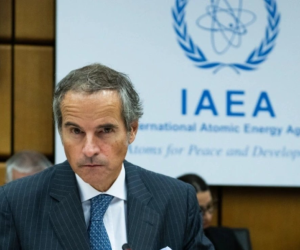
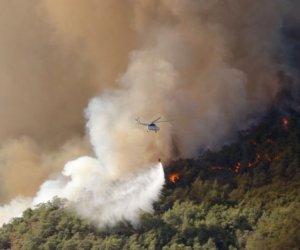
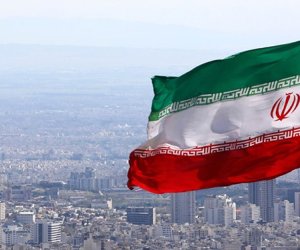



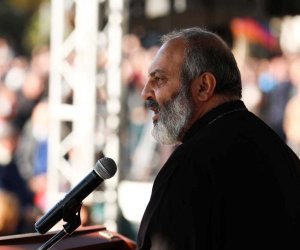




 Photo
Photo 



 Video
Video 

